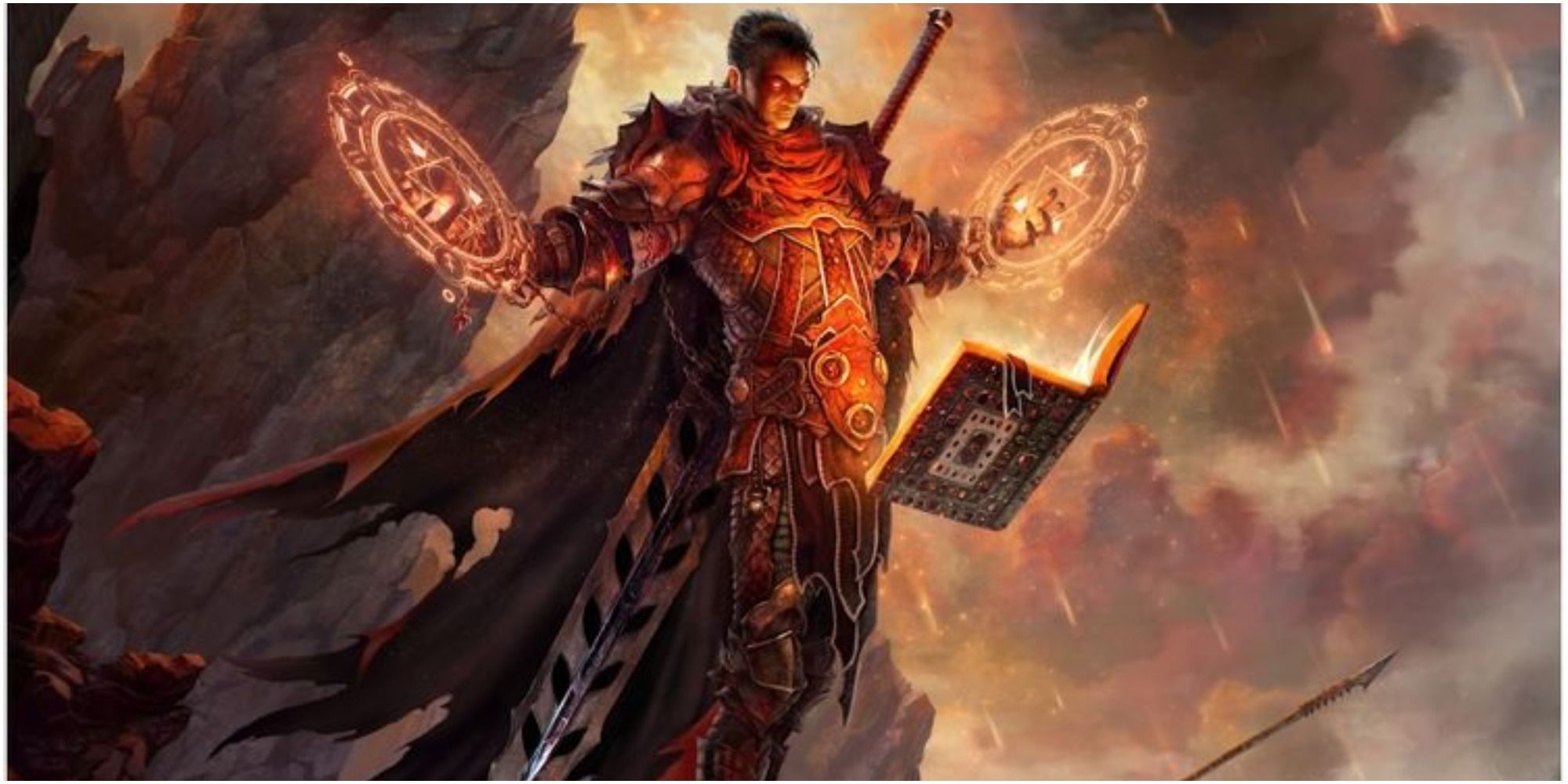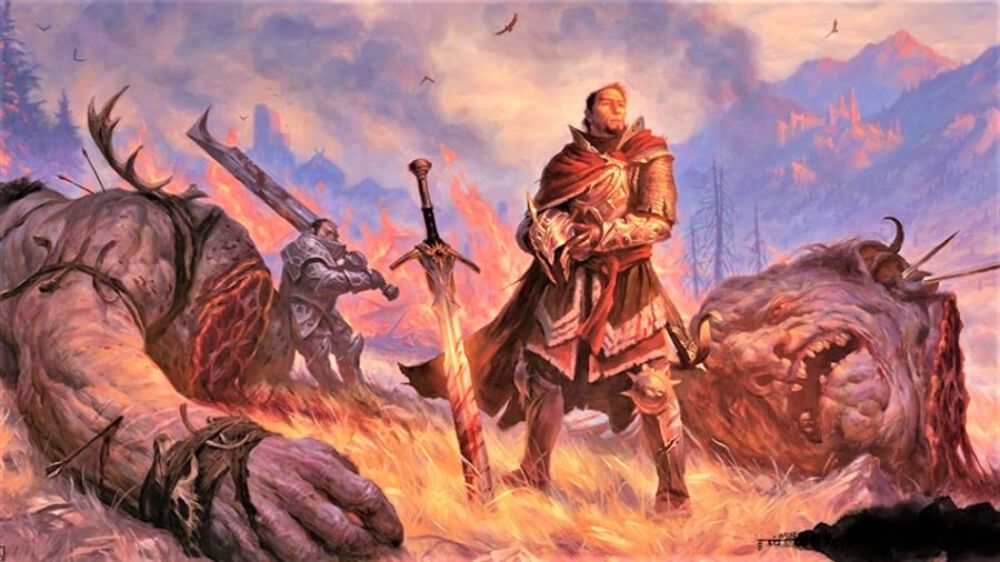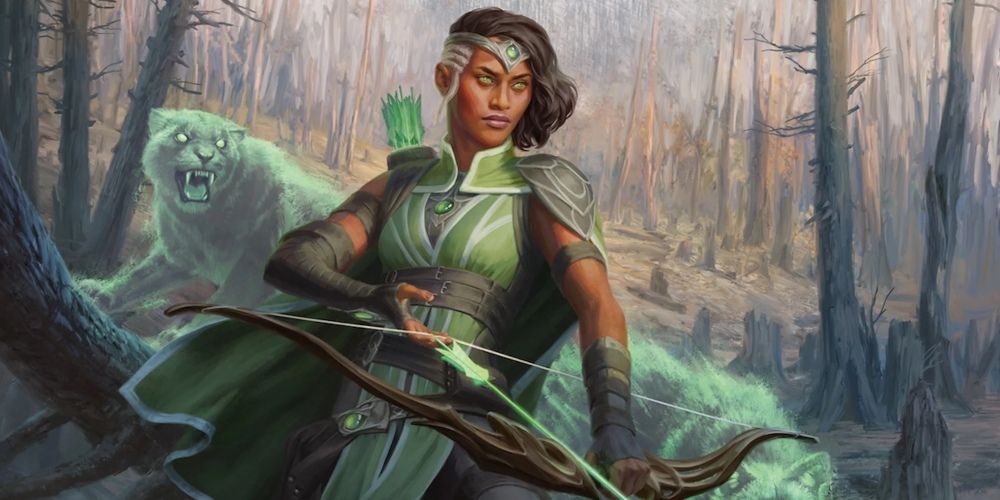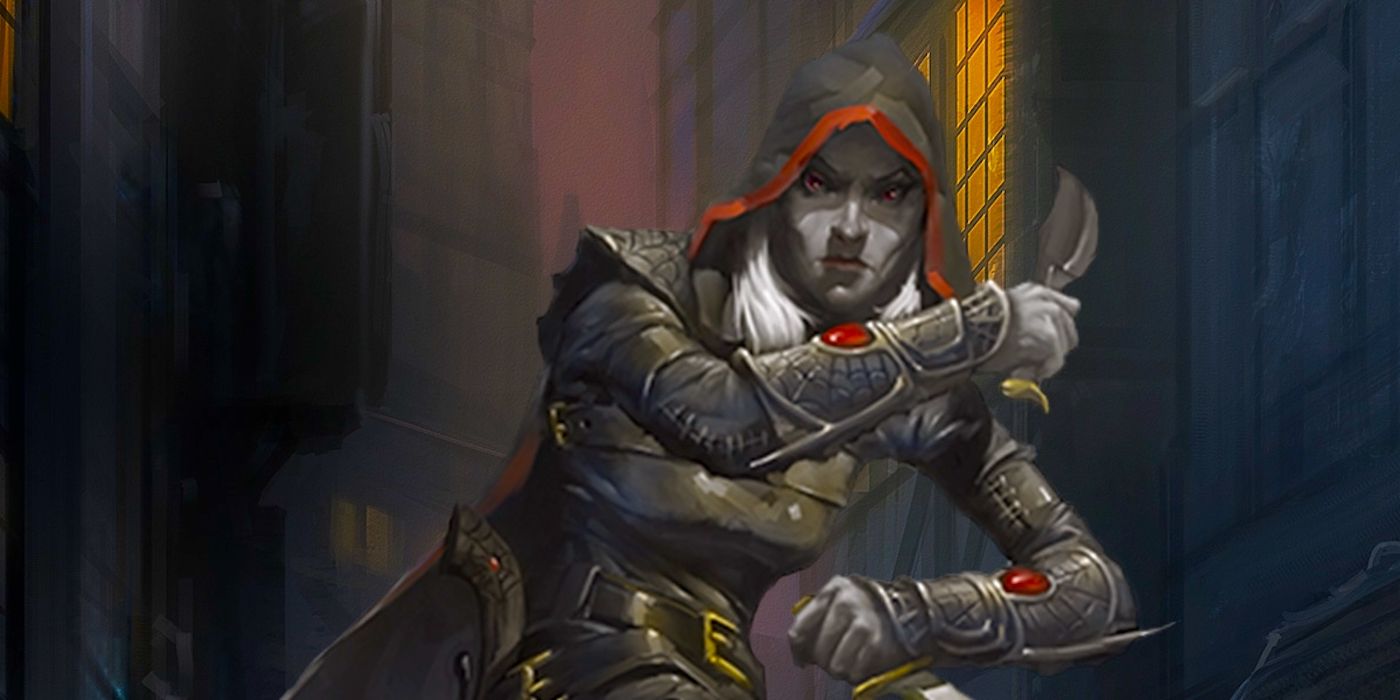Dungeons & Dragons is a complex game. It's not the most in-depth or simulationist RPG, but it still has an entire book of rules dedicated to players alone, and two more for Dungeon Masters. Players are likely to pick up the basics after a few sessions, but they may not know everything.
The rules for 5th Edition Dungeons and Dragons have lots of exceptions, special cases, and situational rules. This is most notable during combat, which has by far the most rules of any part of the game. Even outside of combat, however, there are plenty of odd rules that may catch players off-guard.
10 Dexterity Bonus Doesn't Solve Initiative Ties
Initiative is an important part of combat, as the order creatures go in can have huge ramifications on the rest of the conflict. The results of an Initiative check can favor either side, enable certain combinations, or end fights before they can truly begin.
Players and enemies can tie on Initiative checks. Most tables use Dexterity bonus to break these ties, having the quicker and more agile character go first. By the rules, this isn't necessary. Players decide who goes first in the case of a tie between characters, and DMs decide in any other circumstance. Some tables may find using a pre-determined bonus more fair.
9 Characters Can Cast More Than One Levelled Spell Per Turn
The rules around bonus action spellcasting are some of the most infamously convoluted in 5e. Much of the game takes a simpler and more approachable stance on rules. Bonus action spellcasting, by contrast, is fiddly and complicated. Many tables simplify them to "a character may only cast one levelled spell per turn," and may even think that it's the genuine rule.
That is an oversimplification. A character can cast as many levelled spells per turn as they like. The restrictions come into play when a character uses a bonus action spell. Regardless of the level of the spell — even if it is a cantrip — this blocks them from casting a non-cantrip for the rest of their turn. If a player never casts with a bonus action, they face no restriction at all.
8 Natural 1s And 20s Only Apply To Attack Rolls
Several tables enjoy a player rolling the highest or lowest possible numbers on a d20. A Natural 20 might cause an unexpected, wildly successful outcome. A Natural 1 might see stunning incompetence or an embarrassing failure. Many tables enjoy this, and there's nothing wrong with that, but it isn't mentioned in the rules.
A Natural 1 or 20 only applies to attack rolls, not ability checks or saving throws. By the rules, a 1 or a 20 on the d20 are treated the same as any number outside of attacks. This changes in One D&D, with Natural 1s or 20s becoming automatic failures or passes on any d20 Test. Furthermore, a Natural 1 is only an automatic miss by the rules, not a weapon fumble or instance of friendly fire.
7 Sneak Attack Doesn't Actually Require Sneaking
The signature ability of the rogue class is Sneak Attack. It lets them strike unseen or opportunistically, dealing vastly more damage than a simple weapon attack should. It's this ability that helps rogues be capable combatants, being their equivalent of additional attacks or more powerful spellcasting.
Its name can mislead a lot of players. Many think that Sneak Attack requires a rogue to be hidden, unseen, or targeting an unexpecting enemy. By the rules, a character simply needs advantage, or to be attacking an enemy within five feet of an ally. It's less of a killing blow from the shadows, and more of a cheap shot while the enemy is distracted.
6 Most Magic Items Don't Regain All Of Their Charges Every Day
Magic items are some of the most fun and powerful tools players get access to in the game. Their abilities, and particularly ones that use up charges, tend to be useful or devastating. Magic items regain charges at dawn every day, ensuring players can use them regularly. However, they don't automatically recharge to full, unlike most player abilities.
Instead, most magic items gain a number of charges equal to a die roll, sometimes with a bonus. This forces players to ration them somewhat, often requiring two or more days to return to full power. Many players accidentally overlook this and simply have their magic items recharge up to full every dawn.
5 Creatures Can't Ready Actions Outside Of Combat
Readying an action lets a player take more control of the battlefield. It lets them do things when they choose, rather than being forced to during their turn. It's a useful ability, letting players prepare elaborate combos or attack currently unavailable enemies. Many players try to use it for something else, preparing to attack before combat begins.
However, actions can't be prepared this way. Readying an action requires the player to do so on their turn, something they don't have outside of combat. Players may wish to ready an attack if they know combat is starting, but that's what the Initiative roll represents: characters attempting to get the first shot before their enemies can react.
4 Inspiration Grants Advantage, Not Re-Rolls
Inspiration is one of the primary resources given for out-of-game reasons. Players get inspiration for good roleplaying, or for other reasons the DM sees fit. Plenty of players use inspiration as a free re-roll or a get-out-of-jail-free card when a roll goes poorly. However, this is much more powerful than Inspiration is by the rules.
The primary function of Inspiration is to grant advantage on a rule, used beforehand, rather than after. As such, players should use it on important roles, rather than when they roll low. The Lucky feat gives players the ability to re-roll their low rolls after the fact.
3 Ranged Attacks Have Disadvantage On Anybody When An Enemy Is Within Five Feet
Ranged combat is powerful in D&D. It doesn't deal much less damage than melee combat, and can be carried out at far longer ranges. It's balanced by its lack of use against close-up enemies. If an enemy is within five feet, a creature has disadvantage on their ranged attack rolls.
Many tables make this effect too limited. They misunderstand it as granting disadvantage to attack the enemy within five feet. Having an enemy within five feet grants disadvantage to all ranged attacks. It doesn't represent the difficulty of a point-blank shot, but the challenge of lining up an arrow while dodging a sword.
2 Bonus Actions Can't Be Used As Actions
Bonus actions are a complicated addendum to 5e's move-action system of combat. They represent a lesser, quicker action that players can do alongside their main actions in combat. Due to their lesser status, some players assume they can choose to use a bonus action ability with their action.
By the rules, nothing lets a player do this. Bonus actions can only be used with a bonus action, and a regular action can't be downgraded to a bonus action. The exception to this is that some abilities can be used as either. A Circle of the Moon Druid can use Wild Shape as a bonus action, but never loses the ability to use it as an action.
1 Surprise Rounds Don't Exist
Players often want to get the drop on enemies, using stealth to catch them unprepared. Doing so can trivialize a battle. If players can kill the most significant threats before they can so much as move, they stand a much better chance of winning a fight. When players get the drop on enemies, they typically want a surprise round.
The problem with this is that the term doesn't exist in 5e. It's a holdover from older editions of the game, which treated surprise differently. Surprised is instead a condition in 5e, that applies to creatures unaware of their foes. Before anyone can attack in combat, even with surprise, both sides have to roll initiative. A creature then loses the Surprised condition if it takes its turn — even if the players haven't acted.


.jpg)








